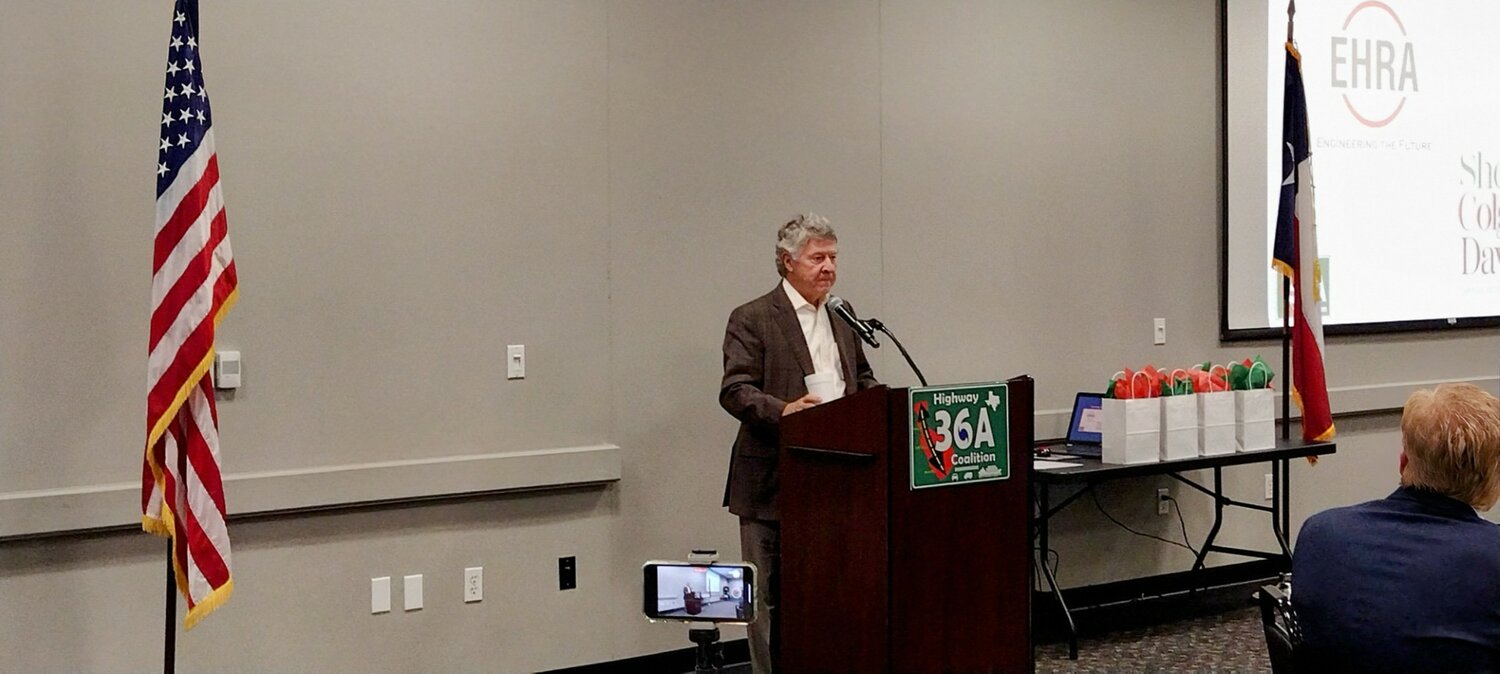Embracing the Future: Ed Emmett Discusses the Fourth Era of Transportation at Highway 36A Coalition Event
Key Ideas
- Former Harris County Judge Ed Emmett discusses the concept of the Fourth Era of Transportation, emphasizing the shift towards new fuels like ammonia and hydrogen.
- Emmett highlights the importance of transportation options for future growth in Waller and Fort Bend counties, focusing on factors like the expansion of Port Freeport and the need for alternative fuel sources.
- The discussion at the Highway 36A Coalition luncheon underscores the vital role of innovative energy solutions in shaping the development of transportation infrastructure and freight movement.
- Emmett's insights bridge academic theories with real-world implications, linking the evolution of transportation to the practical challenges and opportunities presented by projects like Highway 36A.
Former Harris County Judge Ed Emmett, currently a Fellow in Energy and Transportation Policy at Rice University’s Baker Institute in Houston, delivered a keynote speech at the Highway 36A Coalition's recent luncheon in Rosenberg. Emmett introduced the audience to the concept of the 'Fourth Era of Transportation,' a phase succeeding natural movement, steam power, and petroleum-dependent eras. This new era is anticipated to be characterized by the adoption of innovative fuels such as ammonia, hydrogen, compressed natural gas, and nuclear energy, alongside the ongoing use of petroleum. Emphasizing the significance of transportation options for the future growth of Waller and Fort Bend counties, Emmett highlighted key factors like the expansion of Port Freeport, the potential necessity for a second rail line, the rise of warehouse and distribution centers, and the importance of large truck stop operations carrying alternative fuels. The event illustrated the essential role of forward-thinking energy solutions in influencing the trajectory of transportation infrastructure and the efficient movement of goods. Emmett's synthesis of academic theories with practical considerations demonstrated the crucial link between evolving transportation paradigms and the tangible challenges and opportunities faced by initiatives like the Highway 36A project.
